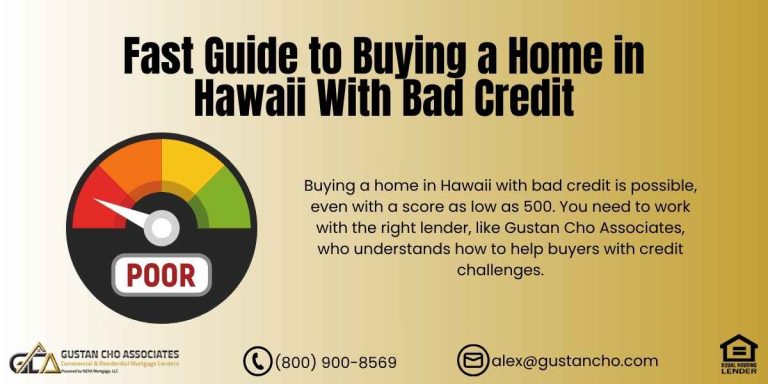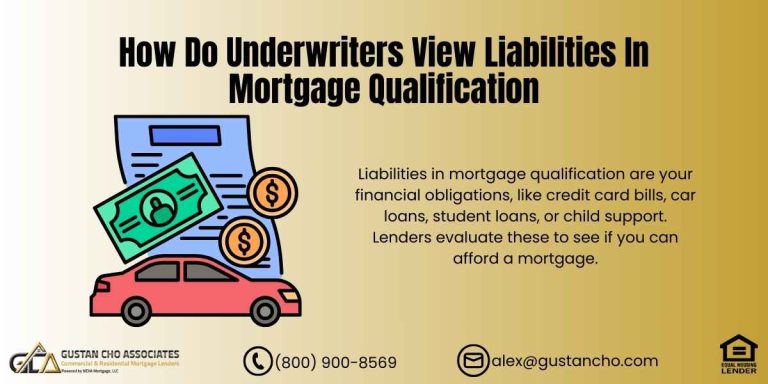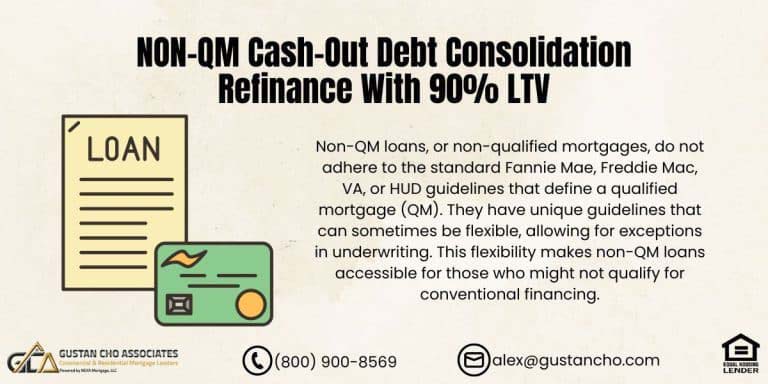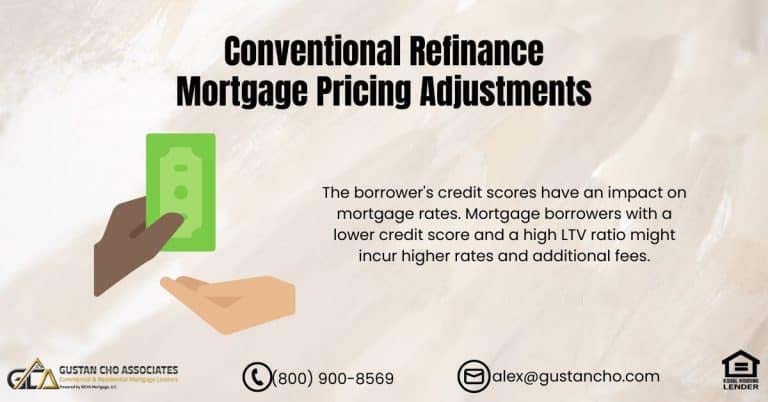In this blog, we will discuss and cover bank statement loans for self-employed borrowers. Non-QM Loans and Bank Statement Loans are back. Gustan Cho Associates is a national mortgage company licensed in multiple states known for its no lender overlays on government and conventional loans as well as the dozens of non-QM loan programs we offer our borrowers.
Gustan Cho Associates has a national reputation for being a one-stop mortgage shop since we offer government and conventional loans as well as alternative financing loan programs and non-QM loans.
Bank statement loans are a type of mortgage designed specifically for self-employed borrowers who may need help meeting the income verification requirements of traditional loans. Instead of using tax returns and W-2s to verify income, lenders evaluate a series of personal or business bank statements to understand the borrower’s financial health.
Key Features of Bank Statement Loans For Self-Employed Borrowers
Bank statement loans have been created and launched specifically for self-employed borrowers. Self-employed borrowers including business owners have the benefit of writing unreimbursed business expenses from their business income tax returns. Many self-employed borrowers cannot qualify for a mortgage loan due the substantial unreimbursed business expenses. Below are key features of bank statement loans for self-employed borrowers:
- Income Verification via Bank Statements: Usually, 12-24 months of bank statements are used to verify income.
- Business vs. Personal Accounts: Self-employed borrowers can use business or personal account statements for verification.
- Higher Down Payments: Generally, these loans require higher down payments than conventional loans.
- Interest Rates: Interest rates are typically higher than traditional loans due to the additional risk involved.
- Credit Score and Reserves: Lenders might require a higher credit score and greater cash reserves.
Freelancers, independent contractors, and small business owners who may have fluctuating monthly income or tax deductions that reduce their taxable income.
Self-Employed? Get the Home Loan You Need with Bank Statement Loans!
Contact us today to learn how bank statement loans can help self-employed borrowers like you secure a mortgage.
How to Qualify For Bank Statement Loans For Self-Employed Borrowers
Self-employed borrowers with at least of two years of self-employed income are eligible for bank statement loans for self-employed borrowers. Verification of rent and three traditional credit tradelnes are normally required.
- Strong Bank Statement History: Maintain clean and consistent bank statements for 12-24 months.
- Good Credit Score: Aim for a credit score of 600 or higher.
- Down Payment: Expect to make a down payment of 10-30% of the property’s value.
- Cash Reserves: Maintain sufficient cash reserves to cover several months of mortgage payments.
- Organize Financial Documents: Ensure your bank statements are accurate and organized.
Work with a lender familiar with bank statement loans to navigate specific requirements. Understanding these loans and working with specialized lenders can help self-employed borrowers achieve their home-buying goals.
Types of Non-QM Loan Programs
Some of our popular non-QM home loan programs include the following:
- 12-months bank statement mortgage program for self-employed borrowers with no income tax returns required
- Mortgage one day out of foreclosure and bankruptcy with no mandatory waiting period requirement
- Asset-depletion mortgage programs with no income tax returns and/or W-2s required
- P and L stated income mortgages with only one-year self-employment history
- Traditional 90% LTV Jumbo Mortgages with debt to income ratio up to 50% DTI and credit scores down to a 660 FICO
- Non-QM Jumbo Mortgages with credit scores down to 500 FICO
- Fix and flip mortgages for real estate investors
Non-QM loans are not hard money loans. Non-QM loans are not for borrowers with just bad credit. There are many qualified borrowers with strong credit profiles and high credit scores that benefit from non-QM loans.
Stated Income And Mortgages With No Income Tax Returns Are No Back
Gustan Cho Associates has one of the largest non-QM loan programs in the nation. Non-QM mortgages are alternative home mortgage programs. Non-QM loans benefit borrowers who do not qualify for government and/or conventional loans. Non-QM home loans are portfolio loans with no maximum loan limit. 10% to 30% down payment requirements are normally required. There are no private mortgage insurance requirements on Non-QM mortgages. One of our most popular non-QM home loan programs is the 12-month bank statement mortgage loan program for self-employed borrowers.
Self-Employed Mortgages with No Income Tax Required
Income tax returns are not required on the 12-month bank statement loan program. 12 months of deposits on bank statements are averaged and used as the monthly qualified income. Withdrawals do not matter and the account balance on the bank statement does not matter.
If a borrower deposits $10,000 every month in their bank account and withdrawals $9,999.00, the $10,000 monthly deposits are only used and the withdrawals do not matter.
Until now, self-employed borrowers had a very difficult time qualifying for home loans. Self-employed and business owners have the benefit of taking advantage of write-offs, commonly referred to as unreimbursed business expenses. This was due to the many write-offs on their income tax returns. Lenders use adjusted gross income as the qualifying income.
No-Income Documentation Mortgages
Adjusted gross income is income after tax deductions. Tax Returns are not required on bank statement loans for self-employed borrowers at Gustan Cho Associates. Non-QM loans normally take 30 days or less to process, underwrite, and fund. No-Doc Loans and Bank Statement Loans were really common and popular prior to the 2008 Subprime Crisis. 2018 is the year when Bank Statement Loans For Self-Employed Borrowers came back. Until now, Self-Employed Borrowers had a rather difficult time qualifying for home loans.
In this article, we will cover and discuss Bank Statement Mortgage Loans For Self-Employed Borrowers Mortgage Guidelines.
What Are Lending Guidelines For Bank Statement Loans For Self-Employed Borrowers
Tax returns are not required with our 12-month bank statement loans for self-employed borrowers. We can use the following:
- 12 months personal bank statements
- 12 months business bank statements
If we use 12 months of bank statements, then 100% of deposits can be used. If we use 12 months of business bank statements, then 50% of the deposits can be used. Need to be a personal and/or business account from the same bank. Cannot have overdrafts and/or bounced checks.
Self-Employed and Need a Mortgage? Bank Statement Loans Could Be the Perfect Fit!
Reach out today to learn more about this flexible loan option.
Debt-to-Income Ratio And Other Requirements
20% is normally the preferred amount of down payment required on bank statement mortgage loan programs. Borrowers with 720 credit scores are allowed a 10% down payment. Maximum debt to income ratios cannot exceed 50% DTI with compensating factors. Deferred Student Loans can be exempted from debt to income ratio calculations. Gustan Cho Associates has no cap on Loan Limits on Bank Statement Mortgage Loans and NON-QM Loans. There is no private mortgage insurance required on all non-QM loan programs.
12-Month Bank Statement Loans For Self-Employed Borrowers Mortgage Guidelines
Here are other requirements for self-employed borrowers prior to the comeback of 12-month bank statement loans for self-employed borrowers: The borrower needs income documentation in order to qualify for any type of home loans. Qualifying income for self-employed borrowers was a problem for business owners until now.
Now with the introduction of bank statement loans for self-employed borrowers, business owners and entrepreneurs can qualify for mortgages of all loan amounts with a bank statement mortgage loan program.
We do not need income tax returns. The income is derived by adding 12 months of bank statements and averaging the 12 months to derive to the monthly income. Again, as mentioned earlier, 100% of deposits can be used on personal bank statements and 50% of deposits on business bank statements.
How Do Lenders Calculate Income For Self-Employed Borrowers?
Self-employed income calculations are determined by tax returns on traditional mortgage loan programs like FHA, VA, USDA, Conventional, and Jumbo Mortgages. Mortgage Underwriters average the past two years of adjusted gross income when determining self-employed income calculation.
More times than not, self-employed mortgage loan borrowers write off as much as legally possible in order to declare the least income possible. This technique is great and advantageous to the self-employed mortgage loan borrower.
It is a major hurdle and problem when it comes to qualifying for a traditional mortgage loan for self-employed borrowers. There are some solutions to help self-employed and business mortgage borrowers in obtaining a mortgage loan. With 12 months of bank statement loans for self-employed borrowers, lenders will use deposits of bank statements and not withdrawals when calculating income.
Bank Statement Loans For Self-Employed Borrowers
I strongly recommend that a self-employed or business owner who is trying to get a residential mortgage loan seek the advice of a mortgage banker or mortgage broker specializing in helping self-employed borrowers. The loan officer should have extensive knowledge of self-employed income calculations instead of going to their local banker.
Every lender has different lending underwriting guidelines when it comes to self-employed income calculation. There are lenders that can use part of the mortgage loan borrower’s assets in the self-employed income calculation.
Say you have $300,000 in cash and/or stocks and you declare $40,000 on self-employed income taxes as gross income. The lender will consider taking 4% of assets of $300,000 and using that as part of annual income. So in this case, $300,000 x 4% yields $12,000 total income that the lender will use to underwrite mortgage loan will be $40,000 plus $12,000 for a total of $52,000.
Verified Assets on Bank Statement Loans For Self-Employed Borrowers
Assets such as retirement funds, IRA, and/or 401k can be used as verified assets for the down payment. 60% of the market value of retirement funds such as IRA and 401k can be used as liquid verified assets for the down payment. For example, say a borrower has $200,000 in retirement funds. The lender will take 60% of the $200,000 which yields $120,000 and use it as the borrower’s liquid assets. They will then take 4% of the $120,000 to calculate additional income which is $120,000 x 4% which yields $4,800. The mortgage loan borrower can use the $4,800 as additional income on top of the $40,000 reported primary income on income taxes.
NON-QM Bank Statement Loans For Self-Employed Borrowers
NON-QM Loans and Bank Statement Loans For Self-Employed Borrowers are non-traditional mortgage loans. They are also called portfolio loans because the loan stays in-house with the lender that is funding it. These loans cannot be sold on the secondary market. A 20% down payment is required with NON-QM and Bank Statement Loans.
There are no loan size limits with non-QM and bank statement loans. Mortgage Interest Rates are generally higher on bank statement loans and non-QM loans than they are on Conventional Loans.
Other items that a lender can use in self-employed income calculations are rolling the depreciation the borrower has listed on their Schedule C of their income tax returns. Self-employed or business owners who need more information on bank statement loans for self-employed borrowers, please contact us at Gustan Cho Associates at 800-900-8569 or text us for a faster response. Or email us at alex@gustancho.com. The team at Gustan Cho Associates is available 7 days a week, evenings, weekends, and holidays.
Self-Employed and Need a Mortgage? Bank Statement Loans Make It Easy!
Reach out now to find out how bank statement loans can help you qualify for a home loan as a self-employed borrower.












Looking to purchase a single or multi-family investment property in TN or FL. I have 20% to put down.
Thank You
My score is lower as I did working on a debt settlement for my unsecured debt. Never missed a MTG payment and outside of this settlement, where they encourage you to not pay, I have charged off accounts. I have already paid off all but 3. Looking for FHA or another Non- QM, and looking for lower down payment options. I understand no U/W overlays are added, and my scores are low 600’s. Real Estate in my town is crazy hot, and all new construction is selling out within days. I need to know what are my options, if any.
Hello to Gustan Cho Associates and Capital Lending Network, Inc:
My credit is not that great, i am currently in the process of getting it higher although this may take a while yet. I am a veteran with my COE for the home loan guarantee and i am looking to purchase a home with a little land in PA.
please text or email
thank you
Hi Gustan,
Hope the week’s treating you right so far. Are you available next week to discuss CLEAR for your investigative data needs? I’m free Monday and Wednesday at 9:30am or 11:00am. Otherwise, let me know when works for you and your team to run some live searches and see if we’re a fit to help you. I like to discuss checking your current background investigation services and moving it over to us.
Thank you.
CLEAR offers the most accurate detail on every person in the US, offered to a Non-government agency:
• ID Verification & Risk Scoring
• International Identity Confirmation
• Synthetic ID, Death Record & Multiple SSN check
• Real Property Ownership & Address History
• Phone Record & Ownership Data for all Land, Cell & ViOp lines including Pre-Paid phones
• Business Ownership
• Associated to Marijuana Business (MRB)
• Liens, Judgments, Bankruptcy
• Criminal Records with Pre-Conviction, Arrest & Incarceration Data
• Social Media Search
• Negative News Monitoring
• Ongoing Monitoring or all Public Records
• Passport Verification